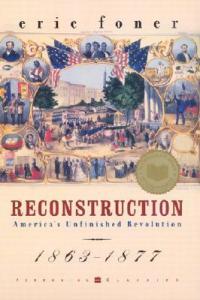Article 1, Section 8, Clause 17 of the U.S. Constitution as adopted by the Constitutional Convention on September 15, 1787 gives Congress authority “to exercise exclusive legislation in all cases whatsoever, over such District (not exceeding ten miles square) as may by cession of particular States, and the acceptance of Congress, become the seat of the government of the United States….”

Andrew Ellicott’s 1792 revision of L’Enfant’s plan of 1791–1792 for the “Federal City” later Washington City, District of Columbia.
In 1802, Congress granted the City of Washington its first municipal charter. Voters were defined as white males who paid taxes and met certain residency requirements.
On April 16, 1862, Congress abolished slavery in the federal district (the City of Washington, Washington County, and Georgetown). This action predated both the Emancipation Proclamation and the adoption of the 13th Amendment to the Constitution.
On January 8, 1867, a bill giving blacks the right to vote in the District of Columbia became law over the veto of President Andrew Johnson. This wasn’t his first veto. In January, 1866, bills were introduced to enlarge the powers of the Freedmen’s Bureau and to extend basic civil rights to negro citizens. Johnson vetoed both bills. Congress was unable to override the Freedmen’s Bureau veto, but succeeded in overriding the Civil Rights Act veto on a Senate vote of 33 to 15. It was the first successful override in the nation’s history. More vetoes followed by Johnson, and more overrides.

President Andrew Johnson
Eric Foner, respected historian and author of the outstanding book Reconstruction: America’s Unfinished Revolution: 1863-1877 writes about the motives behind President’s Johnson’s vetoes. First of all he was a States Rights man, and loathed the extent to which the Republicans promoted federal intervention. But there was more:
Somehow, the President had convinced himself that clothing blacks with the privileges of citizenship discriminated against whites – ‘the distinction of race and color is by the bill made to operate in favor of the colored and against the white race.’ He also presented the curious argument that immigrants from abroad were more deserving of citizenship than blacks, because they knew more about ‘the nature and character of our institutions.’ Johnson even invoked the specter of racial intermarriage as the logical consequence of Congressional policy.”
What President Johnson accomplished by his vetoes and blatantly expressed racism was to unify the Republican party:
Whatever their differences, virtually all Republicans by now endorsed the view expressed by the Springfield Republican after the veto [of the Civil Rights Act]: Protection of the freedmen’s civil rights ‘follows from the suppression of the rebellion….The party is nothing, if it does not do this – the nation is dishonored if it hesitates in this.'”
Filed under: History, legal | Tagged: Black History, History, legal |






Leave a comment